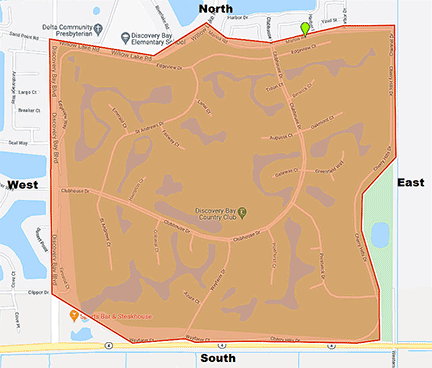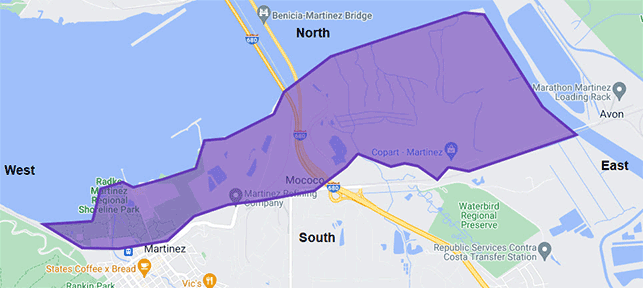CONCORD, CA – The Contra Costa Mosquito and Vector Control District (District) reports 11 more dead birds and three more groups of trapped mosquitoes have tested positive for West Nile virus (WNV) in Contra Costa County.
The dead birds were collected from Concord (5), Walnut Creek (2), Martinez, Pleasant Hill, El Cerrito, and Alamo; while the mosquitoes were trapped in Discovery Bay, Martinez, and Holland Tract near Knightsen. So far this year, there have been 22 dead birds, 11 groups of trapped mosquitoes, and three sentinel chickens that have tested positive for WNV in 2023.
Due to increasing West Nile virus activity in the area, the Contra Costa Mosquito and Vector Control District will be using truck-mounted, ultra-low volume sprayers to control adult mosquitoes in two locations:

LOCATION Two: Discovery Bay
The area to be treated is bordered on the north by Willow Lake Road and Marina Road; on the south by Highway 4; on the east by Cherry Hills Drive; and on the west by Discovery Bay Boulevard.
- Aug 26 – West Nile Virus Activity Continues in Contra Costa County
- Aug 19 – West Nile Virus Becomes More Widespread in Contra Costa County
- Aug 11 – West Nile Virus Activity Intensifies in Contra Costa County
- July 15 – West Nile Virus Returns to Contra Costa County

